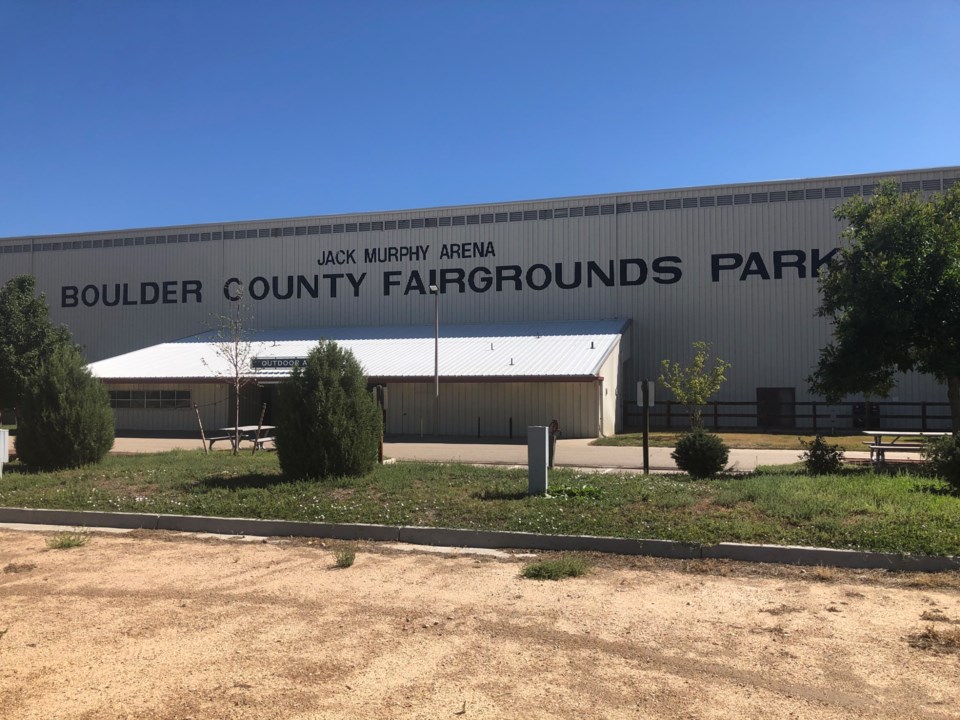Participation was down at this year’s Boulder County Fair, a 151-year-old event deflated by COVID-19 restrictions that kept many 4-H kids from showing their horses, pigs and cattle live and in-person from the fairgrounds in Longmont.
Fair officials canceled time-honored events like the parade through downtown Longmont because of COVID-19 safety guidelines. They also emphasized virtual shows and competitions that could be viewed via livestream on Facebook and on the fair’s website.
The format prompted some veteran participants to skip the Boulder County Fair in favor of the in-person Colorado State Fair, said Carmen Porter, a veteran show manager for the 4-H and FFA horse shows.
Donations for annual livestock sales also were down from previous years, Melanie Bohren, interim Fair Board president, said, although exact figures are not yet available.
“It is understandable that many people and companies don’t have the usual resources they have had in years past, and I think the kids understood that,” Bohren said via email. “In addition, the benefit of having a virtual event was that kids could send it to friends and family across the country, and we had bids coming in from all over.”
The lack of camaraderie that usually comes when ranch and farm kids get together one time a year to show off their prime livestock also showed, Porter said.
“I think they missed the opportunity to get together and share their stories and what they did to prepare for this year,” Porter said. “This is usually their Super Bowl and a lot of that was lacking.”
Livestock species that came to the fairgrounds came on different days, with goats one day, horses and sheep on another. Officials only allowed 10 people or less at a time in the arenas.
Parents, a judge, an arena manager and the 4-Her were usually the only ones who witnessed an animal being shown, Porter said.
Still, she and other fair officials were heartened by the number of 4-Hers who showed off their livestock in the new online format.
“The participation was down, although I was surprised how many kids did continue with their projects and exhibit an animal,” Bohren said.
Kids uploaded photos and videos of their animals and the same judges who worked live shows, judged the animals and awarded ribbons, Bohren said.
“I would say almost everyone in our 4-H club participated in either the live or virtual show,” she said.
Bohren’s daughter raised market goats and turkeys this year for the fair. She said at one point this summer her family wondered if the fair would be held at all, squandering her daughter’s hard work.
But they decided to go ahead with their fair projects as planned, Bohren said.
“Even if there would not be a fair, it would give some structure and routine to our summer,” she said.
Bohren added a smaller, revised fair is still better than a summer without the event.
“Overall we were very happy that we were able to have a way for the kids to exhibit their animals at the end of the summer,” she said. “Even though it was very different from what we have done before, the Boulder County Fair, Livestock Sale Committee and the 4-H Extension agents worked hard to provide the kids an opportunity to not only exhibit their animals but also recoup some of the costs involved in raising those animals.”


